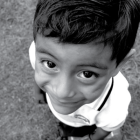
Move over Atticus Finch, there’s a new kind of lawyer in town: The Child Welfare Law Specialist. Georgia now has 17 of these specialized attorneys, certified by the National Association of Counsel for Children. They are uniquely qualified to represent children, parents and state welfare agencies in abuse, neglect and dependency cases:
Jamie Averett
Patricia Buonodono
Darice Good
Diana Johnson
Mary McCord
Kimberly Mullins
Temika Murry
Anissa Patton
Jennifer Satija
LaMia Saxby
Brooke Silverthorn
Jamie Smith
Leslie Stewart
Marie Watson
Suzanne Whitaker
Ashley Willcott
Rosalind Zollicoffer
Specialists must pass a written exam on child welfare law, and prove their knowledge through peer review, education and writing. The Child Welfare legal specialty is recognized by the American Bar Association, The U.S. Department of Health and Human Services Children’s Bureau, The National Council of Juvenile and Family Court Judges, and other groups
If you know someone who might qualify, check out the application. The next application deadline is August 15, 2010







